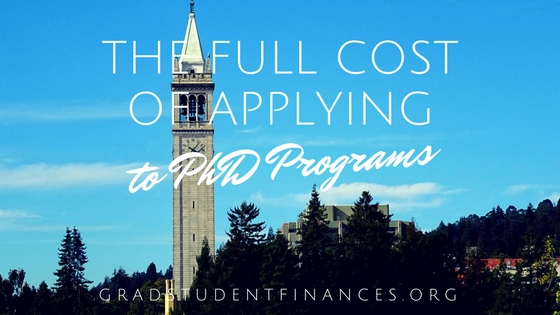Today’s post is by a grad student who expanded her transferable skills through a series of summer jobs.
Institution: West Virginia University
Department: Natural Resource Economics
1. What was your side job and how much did you earn?
While pursuing my Master’s Degree I worked in the Library (Cataloguing) and was paid around $8/hr. While pursuing my Ph.D. some Summers, I got to help my Professor out and was paid additional 20 hrs/week which was between $20-$25/hr. One summer I worked on an outside research project in which one of my Faculty members was a consultant and so for that I was paid $12/hr. While these are not the side jobs, during the final two years of my Ph.D. I was not funded by my department. One Semester I taught and was responsible for Introductory Biology Labs ($18-20/hr) and then I was a Graduate Student Assistant ($18-20/hr) for the McNair Scholars Program which led to the Project Coordinator role after I defended my Dissertation.
2. How did you balance your job with your graduate work?
These were done during the summer when I was not taking summer classes.
Increase Your Income
Join the mailing list to receive our 7-part video series, "How to Increase Your Income as a Graduate Student," including side hustles and passive income.
3. Did your job complement your graduate work or advance your career?
Most of them did. I learned something new in every job. Working as a teaching assistant in the biology lab was taxing especially due to the grading that needed to be done (at least 100 papers to be graded every week and 200 if I have them a quiz that week) but I had completed all other requirements for my Ph.D. other than defending my dissertation. Working in McNair even though it was a lot of work became a turning point in life and working with students in such a close setting showed me a better way to prepare students for further studies and life outside. This also provided me the motivation which had dwindled to finally finish my dissertation, defend, and graduate.
4. How did you get started with your job?
It started with reaching out to the University career services or for the most part reaching out to the Faculty members in my department.
5. Is there anything else you would like to share about your experience?
I have learned a lot of transferrable skills from taking on various responsibilities during my graduate studies and those experiences continue to help me even today. I would highly recommend taking jobs/roles (even volunteer roles) outside or even within the department that have different responsibilities than what you are doing now. A broader perspective on things and new skills are going to allow you to consider alternatives and allow you to explore your own strengths and weaknesses and interests in new ways. Keep on exploring!
Sudiksha Joshi, Ph.D. is a Learning Advocate who connects the dots between people’s strengths, ideas, and data to enable curious and conscious individuals to personalize their learning and life. Sudiksha currently works as a Data Engineer, is a HuffPost Contributor and writes about her personal journey on WeAreAlwaysLearning.com.






